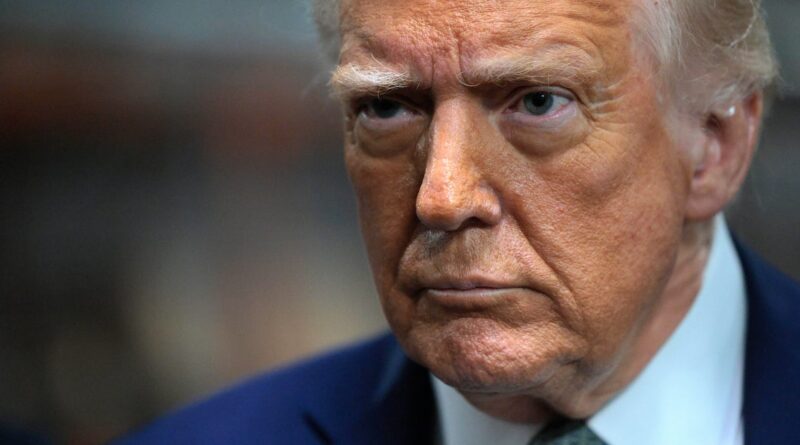Trump announces 25% tariffs on foreign-made cars
President Trump on Wednesday said he will put a 25% tariff on automobiles imported into the U.S., escalating his administration’s use of aggressive trade measures in an effort to boost domestic manufacturers.
After White House press secretary Karoline Leavitt said the tariffs would be detailed at a 4 p.m. EST by Mr. Trump, Wall Street shuddered, with the S&P 500 tumbling by 1.2% in late afternoon trading. Because tariffs are taxes on imports that are largely passed onto U.S. consumers, they can cause households to cut back on spending and dampen economic growth, according to experts.
“This will continue to spur growth like you haven’t seen before,” Mr. Trump said at a press conference Wednesday afternoon. “We’ll effectively be charging a 25% tariff. But if you build your car in the United States, there is no tariff.”
The latest salvo of tariffs comes after Mr. Trump earlier this month gave a one-month exemption to U.S. automakers from the round of import duties that took effect on March 4.
Shares of the Big Three U.S. automakers — Ford, General Motors and Stellantis — all sank after Mr. Trump announced the new tariffs.
Mr. Trump has long said that tariffs on auto imports would be a defining policy of his presidency, betting that the costs created by the taxes would lead both American and foreign automakers to relocate production to U.S. soil.
Automakers with U.S. plants still depend on Canada, Mexico and other nations for parts and finished vehicles. Because booting up manufacturing facilities would take time, in the medium term domestic auto prices would likely increase and car sales decline, experts say.
One analysis of Mr. Trump’s tariffs estimated that auto prices could rise as much as $12,200 for some models due to the new import duties, according to a report from Anderson Economic Group, a Michigan-based economic consultancy.
Kathryn Watson and
contributed to this report.




